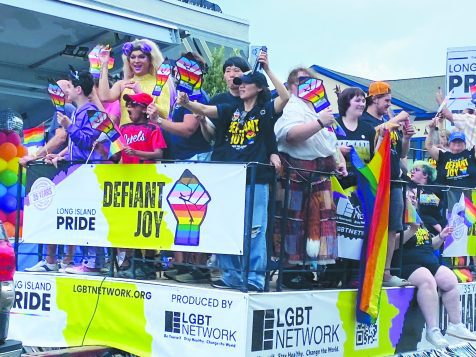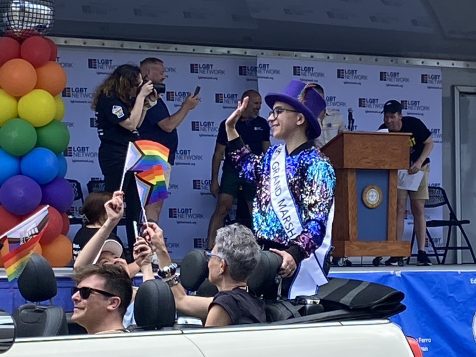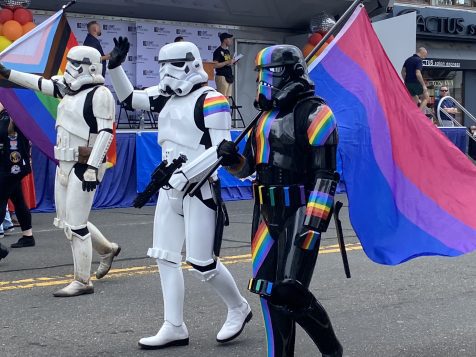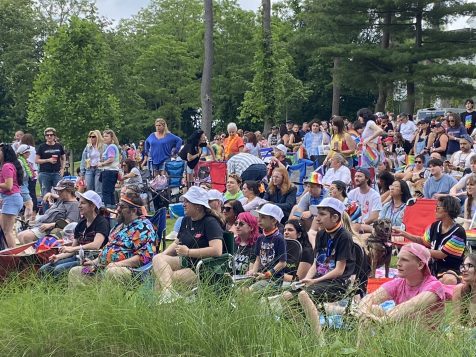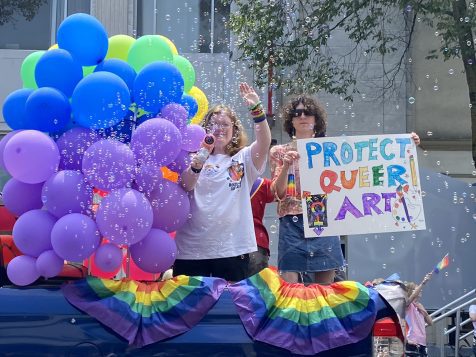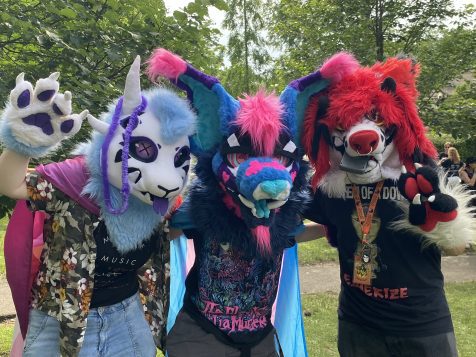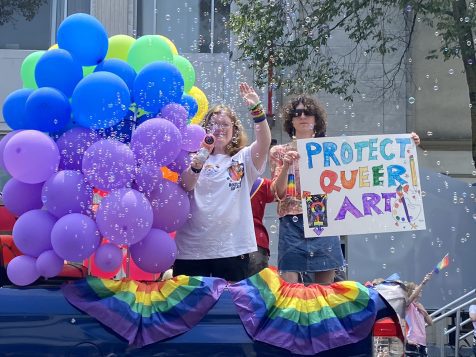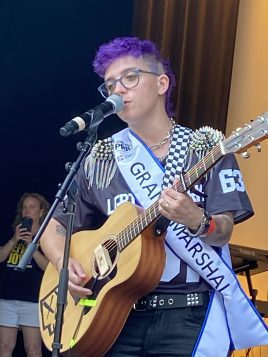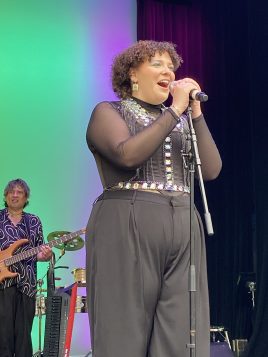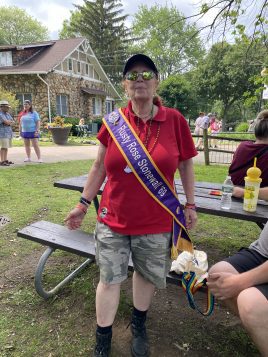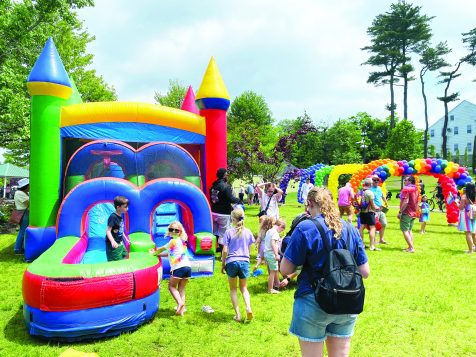By William Stieglitz
“We won’t be erased,” shouted attendees on June 8 at the 35th Annual Long Island Pride Parade, led in the chant by parade co-founder David Kilmnick. The parade’s theme of Defiant Joy, explained LGBT Network CEO Robert Vitelli, was aimed at being “defiant in the face of being told we don’t exist.”
Rainbow-clad cars and marchers made their way down Huntington’s Main Street with flags, balloon arches and floats, all to the cheers of attendees stretching from Clinton Avenue to Spring Road. Local organizations, including activist groups, businesses, synagogues and churches, marched with banners of support, while others performed live music or danced on roller skates. The march flowed directly into the pride festival at Heckscher Park, where attendees were met with many activities.
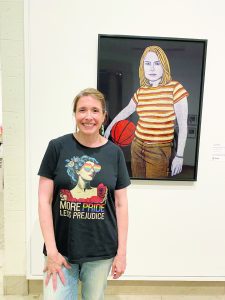
Attendees could enjoy food trucks and vendor booths, congregate at the beer garden or take photos against pride-themed backgrounds. A kids’ zone featured a bounce house, inflatable slide and balloon arches to run through in every color of the rainbow. And The Hecksher Museum of Art, located inside the park, offered free admission to their new “All of Me with All of You” exhibit, featuring work from over 90 LGBTQ+ artists. The collection, explained museum Director Heather Arnet, features art ranging from the mid-19th century to modern day, with the oldest piece being sculptor Emma Stebbin’s marble bust of her romantic partner Charlotte Cushman.
The festival’s biggest feature, however, was the performances on the Chapin Rainbow Stage. Co-hosted by the “mermaid of New York” drag queen Bella Noche and “CBS News New York” John Dias, the show featured the Long Island Gay Men’s Chorus, performances from the musicals “Fowl Play” and “Anything Goes” and “RuPaul’s Drag Race“ queens Tina Burner and Kori King, the latter of whom went into the audience and wooed the crowd with death drops. The audience was also treated to songs from the parade’s grand marshals, “The Voice” finalist Shye Roberts and singer-songwriter Ryan Cassata, who both have local roots. “The LGBT Network really saved my life,” said Cassata, “and it’s a big part of my success.”
Other guests included local poet and Stonewall Uprising veteran Rita Rusty Rose. “I’ve been here since the very beginning, when Steven [Heneghan] and them formed Long Island Pride,” said Rose. “It’s more important to be out and about right now with the political pressure and the hate that we have.”
Kilmnick echoed this sentiment, urging resistance against political efforts of erasure. He spoke on how he and others fought in court to establish the first parade in 1991 and how he now works to oppose actions such as the removal of Long Island native Harvey Milk’s name from a navy ship, who was the first openly gay man to be elected to public office in California and was later assassinated. “[It’s] not a time to be nice,” Kilmnick said. “But it’s a time to love.”

